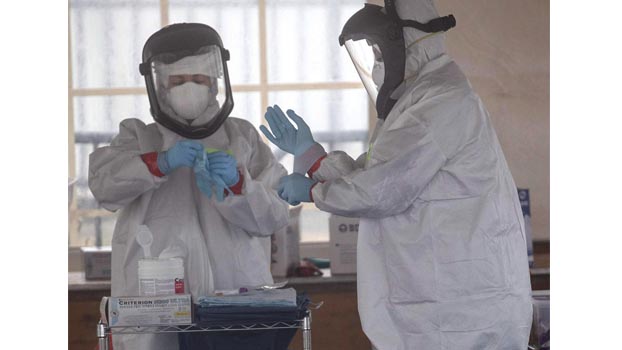Be rational in PPE use: UN chief

UN Resident Coordinator in Bangladesh Mia Seppo has urged all to ensure rational use of Personal Protective Equipment (PPE) during this time of crisis as there is a global shortage of the items needed for healthcare providers. PPE includes items ranging from shoe-cover to eye glasses, mask, gowns and gloves.
“First priority for PPEs? Health care workers. Second priority? Health care workers. Third priority? Health care workers. There is a global shortage of PPEs. Let's work together to ensure informed and rational use,” the UN chief tweeted. She also shared the EHO guidelines which suggest how to ensure rational use of PPE.
In Bangladesh, almost all people who are working now -- be at office or on the street -- are seen wearing masks, despite the crisis among the healthcare providers. The WHO said the COVID-19 virus is transmitted between people through close contact and droplets, not by airborne transmission.
The people most at risk of infection are those who are in close contact with a COVID-19 patient or who care for those patients. Preventive and mitigation measures are key in both healthcare and community settings.
The most effective preventive measures in the community include performing hand hygiene frequently with an alcohol-based hand rub if hands are not visibly dirty or with soap and water if hands are dirty; avoiding touching eyes, nose and mouth; practicing respiratory hygiene by coughing or sneezing into a bent elbow or tissue and then immediately disposing of the tissue and maintaining social distance a minimum of 1 meter from individuals with respiratory symptoms.
WHO suggests wearing a medical mask if you have respiratory symptoms and performing hand hygiene after disposing of the mask. Additional precautions are required by healthcare workers to protect themselves and prevent transmission in the healthcare setting.
Precautions to be implemented by healthcare workers caring for patients with COVID-19 disease include using PPE appropriately; this involves selecting the proper PPE and being trained in how to put on, remove and dispose of it. WHO said COVID-19 is a respiratory disease that is different from Ebola virus disease, which is transmitted through infected bodily fluids.
Due to the differences in transmission, the PPE requirements for COVID-19 are different from those required for Ebola virus disease. “Specifically, coveralls (sometimes called Ebola PPE) are not required when managing COVID-19 patients,” WHO said.
“For asymptomatic individuals, wearing a mask of any type is not recommended. Wearing medical masks when they are not indicated may cause unnecessary cost and a procurement burden and create a false sense of security that can lead to the neglect of other essential preventive measures,” WHO said.


